View all Standards for Texas Essential Knowledge and Skills for Theatre Arts
C.5.A analyze and apply appropriate behavior at various types of live performances.
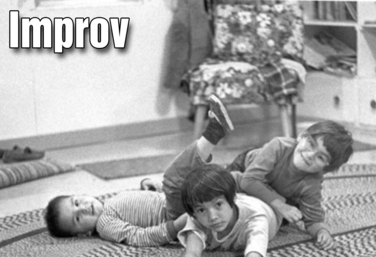
UNIT
Improv
by Anna Porter
Improv is a fantastic method to engage your students; this 3 lesson mini unit is a great way to introduce improvisation.
This unit focuses on learning the rules of Improv, trying games to build improvisation skills, and developing conflict and story line.Through the three lesson series, students will use journals, participate in class discussions, learn six different improv games, and perform for their peers.
Assessment tools include both informal assessment as well as a formal quiz that’s included in the unit.
Read More
about Improv
Read Less
about Improv
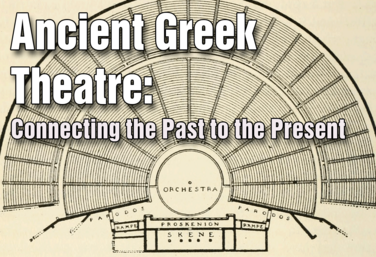
UNIT
Ancient Greek Theatre
by Lindsay Price
In studying Ancient Greece, we’re looking at the foundations of theatre as we know it today. Without the Ancient Greek Era, we do not get actors, theatres, plays, and the definitions of tragedy and comedy.
The issue with studying theatre history, or anything historical is that it can become an exercise in memorizing dates and reciting facts. When the truth of the matter is no one in the 21st century benefits from learning by rote. This is especially true when studying history in the framework of a drama classroom. We need exercises that bring history to life, instead of having students plot dates on a timeline.
To that end, this unit does not focus on dates and data. The essential question for the unit is how can we connect the past to the present and this question is explored through the theatricalization of information. Students will access all four 21st century skills, critical thinking, creative thinking, collaboration and communication as they explore this amazing world.
Reflections, exit slips, and rubrics are included throughout the unit as well as a mid assignment evaluation for the culminating project.
Read More
about Ancient Greek Theatre
Read Less
about Ancient Greek Theatre
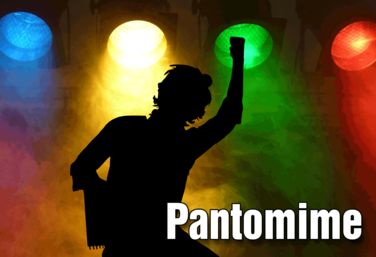
UNIT
Pantomime
by Angel Borths
Teacher Angel Borths developed this unit when she was looking for lessons to teach the basics of pantomime in the classroom.
This unit culminates in a finished product for performance, either for peers, or for theatre festivals. The rubrics and written work for this unit take planning and preparation for performance into account. The exercises can be pulled out and used independently, but work best when used to build toward a finished product. You can also pull the ground plan and stage directions lesson plans to use with playwriting or directing lessons.
Read More
about Pantomime
Read Less
about Pantomime
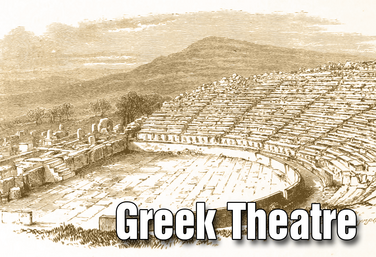
UNIT
Part of the Drama One Curriculum
Ancient Greek Theatre
by Karen Loftus
This unit on Ancient Greek theatre focuses on the function of the chorus, the choral ode, and the details of the theatre space. It touches on plays and playwrights of the era, culminating in a final project of a modern version of Medea that includes a choral ode.
Read More
about Ancient Greek Theatre
Read Less
about Ancient Greek Theatre
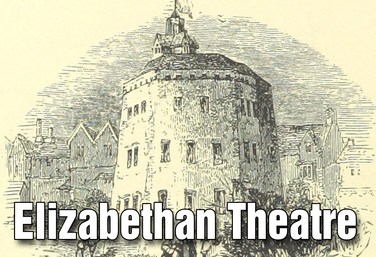
UNIT
Part of the Drama One Curriculum
Elizabethan Theatre
by Karen Loftus
How do you introduce students to Shakespeare? This unit introduces the Bard through life in Elizabethan England and the playwrights, players, and playhouses. It also explores how to approach unfamiliar words and context clues in Shakespeare’s texts.
Read More
about Elizabethan Theatre
Read Less
about Elizabethan Theatre
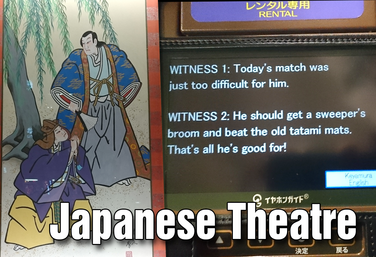
UNIT
Part of the Drama One Curriculum
Japanese Theatre
by Karen Loftus
This unit will enable students to identify, compare, and contrast three different styles of Japanese theatre: Noh, Bunraku, and Kabuki. There are three proposed projects in this unit: a research assignment where groups delve into further detail about one of the three styles; a performance project where students utilize what they’ve learned by enacting a scene from a Kyogen (comedic) play; and a Bunraku puppet play.
Read More
about Japanese Theatre
Read Less
about Japanese Theatre
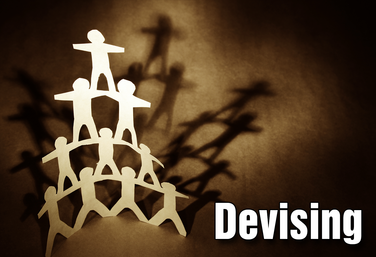
UNIT
Part of the Drama Two Curriculum
Devising
by Corinna Rezzelle
While the Drama Two Curriculum has a focus on acting, it’s always important to include a unit on the technical theatre skills that are necessary to any production. Students will also be able to use what they’ve learned in this unit in their upcoming devising project.
Students will begin by exploring design for the stage by experimenting with line, shape, texture, size, and color. They will expand their understanding of stage properties and scenic flats. They will then apply their knowledge of these building blocks of design to create a high-concept design for a miniature “stage.”
Read More
about Devising
Read Less
about Devising
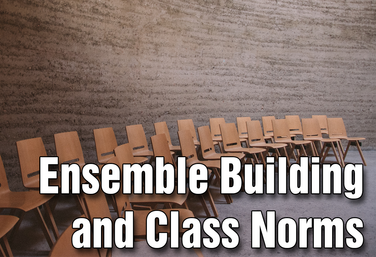
UNIT
Part of the Middle School Curriculum
Unit One: Ensemble Building and Class Norms
by Lindsay Johnson
This unit has six lessons that you can use in the first week of your middle school program. What do you do in the first week? The most important elements are creating routines such as journal prompts, opening and closing circles, and giving strong feedback; creating an ensemble and ensemble-building games; and introducing a Weekly Ensemble Rubric.
Students will define and build ensemble as a group, learning specific ways they can SAY YES and BE SAFE in class. They will understand the daily grading system and the basic routines of class. Finally, students will learn to give strong feedback by connecting specific evidence from performance to the Rubric language.
Read More
about Unit One: Ensemble Building and Class Norms
Read Less
about Unit One: Ensemble Building and Class Norms
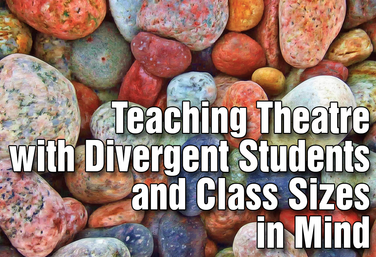
PD COURSE
Teaching Theatre with Divergent Students and Class Sizes in Mind
by Steven Stack
Have you ever wondered how in the world you can have a successful theatre classroom with so many variables that you have absolutely no control over? The two biggest ones being the size of your class and the students that you’re in charge of turning into some truly talented theatre geeks. This course by Steven Stack explores that wonderful and often ridiculous world of theatre classrooms while giving you the tools for you and your students to not only succeed but to flourish as well.
Lessons will include how to make any size class the Goldilocks class as in "just right", defining and working with all types of students you may encounter in your classroom, the seven must-haves of any theatre class, and the importance of structure in the theatre classroom by providing a guideline for setting up your day-to-day class time.
The course also provides tons of ideas, games and activities that you can use instantly in your classroom. So, if you’re a first-time theatre teacher or one just looking for new ideas, this is the course for you.
Read More
about Teaching Theatre with Divergent Students and Class Sizes in Mind
Read Less
about Teaching Theatre with Divergent Students and Class Sizes in Mind
View all Standards for Texas Essential Knowledge and Skills for Theatre Arts Standards Master List